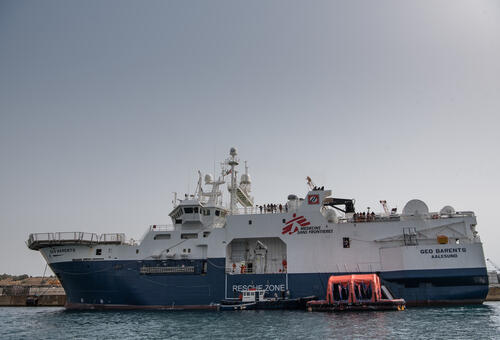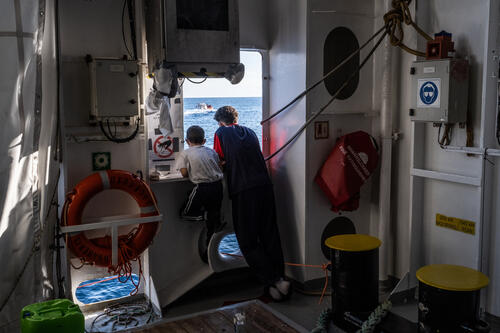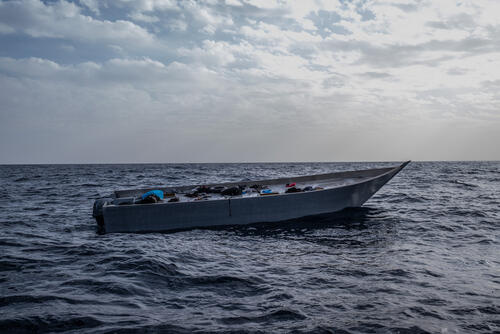On 23 July, Médecins Sans Frontières (MSF) officially requested the release of our ship, the Geo Barents, from three weeks of detention after having responded to all requests made by the Italian Maritime Authority. On 2 July the Italian authorities identified 22 deficiencies leading to the administrative detention of the vessel. Since then, all deficiencies have been addressed, although MSF and the ship owner consider the detention not consistently grounded within the relevant regulations and overly punitive towards the Geo Barents, the ship's owners and MSF.
Today MSF officially requested the Italian authorities to release its fully equipped and certified search and rescue ship the Geo Barents, with no further delay.Frauke Ossig, MSF’s Representative for Search and Rescue
MSF has brought to sea a ship fully equipped and certified to perform search and rescue, while adhering to the current rules and regulations put in place by the relevant maritime authorities. While a Port State Control (PSC) is a legitimate maritime procedure developed to ensure the safety of navigation at sea, these inspections have been instrumentalised by state authorities to target NGO ships in a discriminatory way.
The discriminatory use of the regulations, the way the inspections have been carried out, and the distorted interpretation of the legal provisions make us believe that the PSCs are used as a means to block NGOs from carrying out their life-saving work, and that it is thus politically motivated.
“While MSF fully supports all legitimate maritime procedures and controls that ensure the safety of navigation at sea, MSF challenges the legitimacy of the Geo Barents’ detention; in particular we dispute the Italian authorities’ statement regarding the ship’s unsuitability to carry out systematic search and rescue activities alleging that the ship had too many people on board,” says Frauke Ossig.
“International law does not stipulate specific international classification for humanitarian rescue ships. Such an interpretation of maritime law disregards the fact that rescue operations, as per the duty of shipmasters to provide assistance to people in distress at sea, are considered force majeure situations, as per Article IV of the SOLAS Convention and, thus, the number of people on board should not be taken into account for the purpose of ascertaining the compliance with other provisions of the International Convention for the Safety of Life at Sea.”
“While humanitarian rescue NGOs are filling the deadly void left by states’ disengagement from their responsibility to provide dedicated SAR capacity in the central Mediterranean, it is unacceptable that NGOs are prevented from saving lives”, says Ossig.
“The death toll is increasing by the day and lives continue to be needlessly lost in the Mediterranean. The administrative detention of the Geo Barents is costing lives and wasting crucial resources which would allow us to keep saving people in distress right now.”
These weeks, lives continue to be needlessly lost in the Mediterranean.
Since the beginning of 2021 up to now, at least 820 people have been confirmed dead or missing attempting to cross the world’s deadliest sea border, including 38 deaths in two shipwrecks off Tunisian and Libyan shores reported this week.
Since MSF’s newly chartered boat, the Geo Barents, started operations in the SAR zone on 13 May, teams performed a series of rescues over 10-12 June, rescuing 410 people who all showed signs of extreme exhaustion and various vulnerabilities. Among them were 16 women, of which six were travelling alone and one was pregnant, as well as 101 unaccompanied children. Most people were from war-torn countries, such as Syria, Ethiopia, Eritrea, Sudan, Mali.






